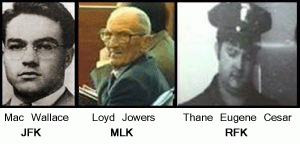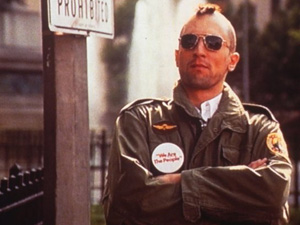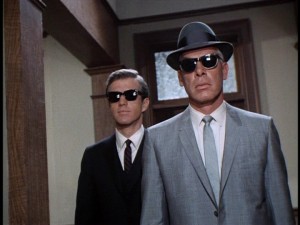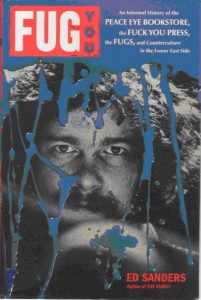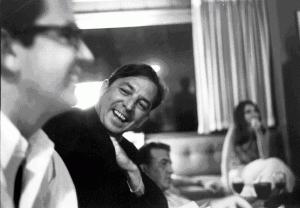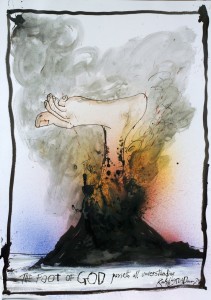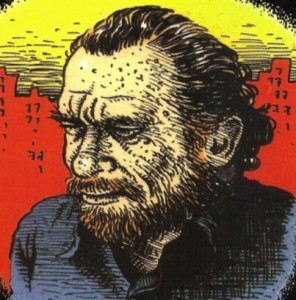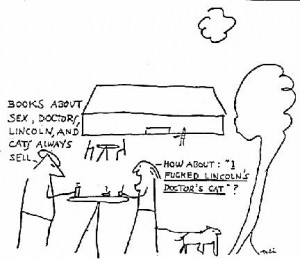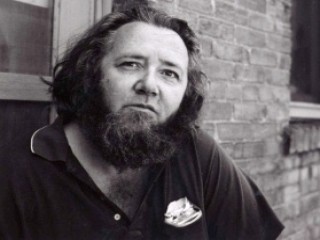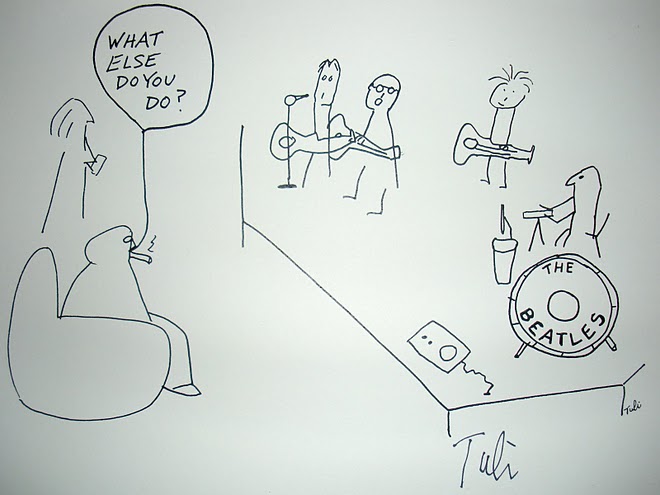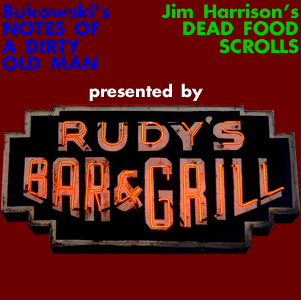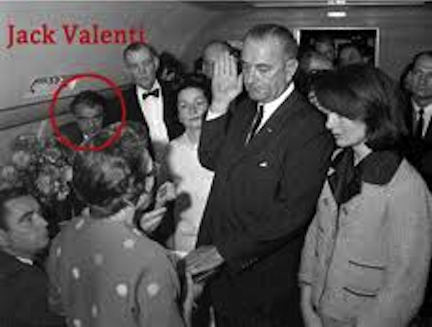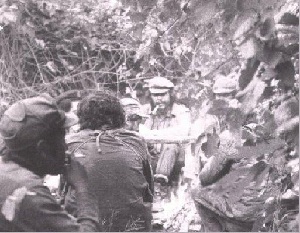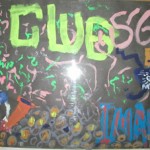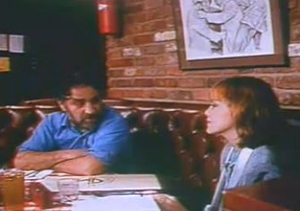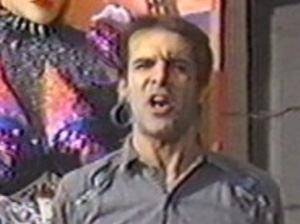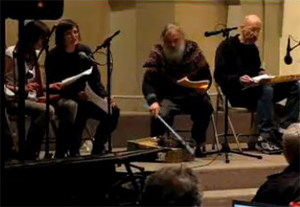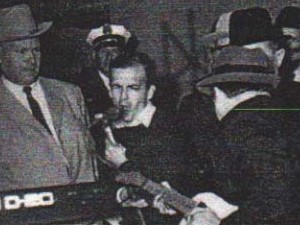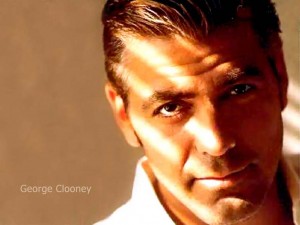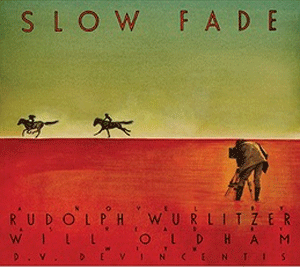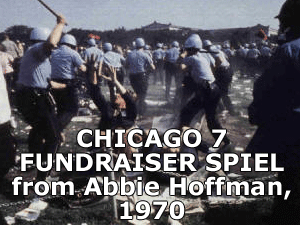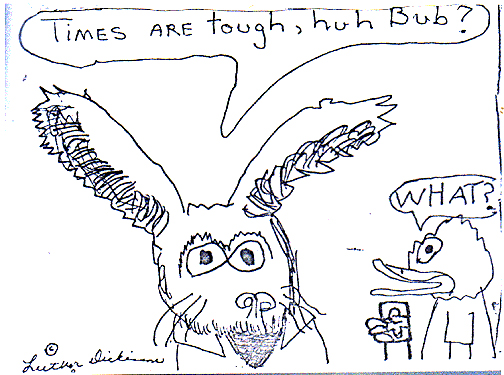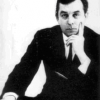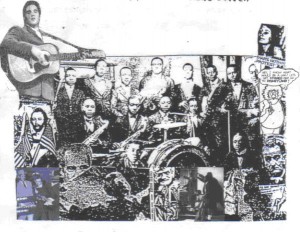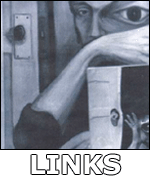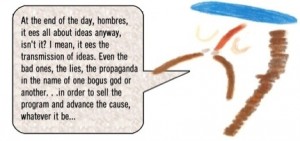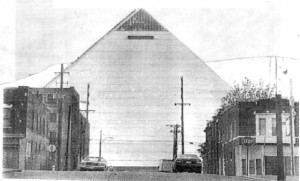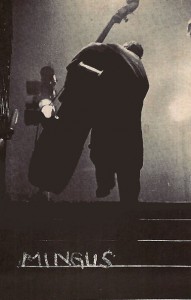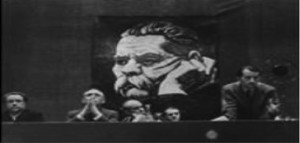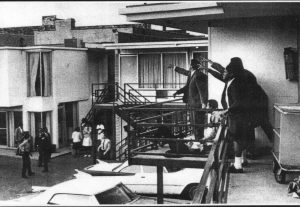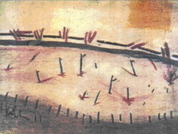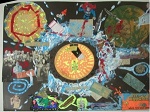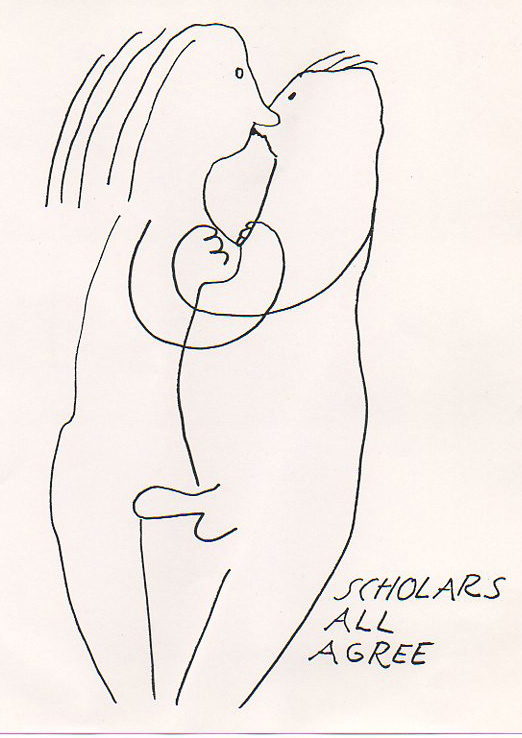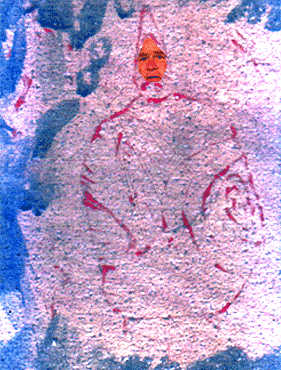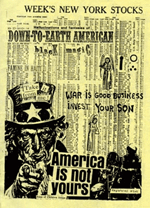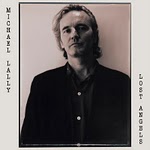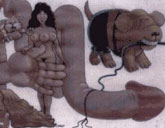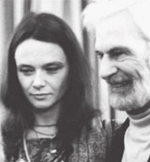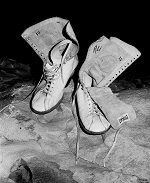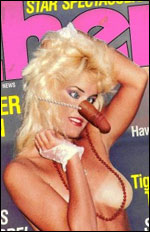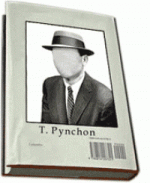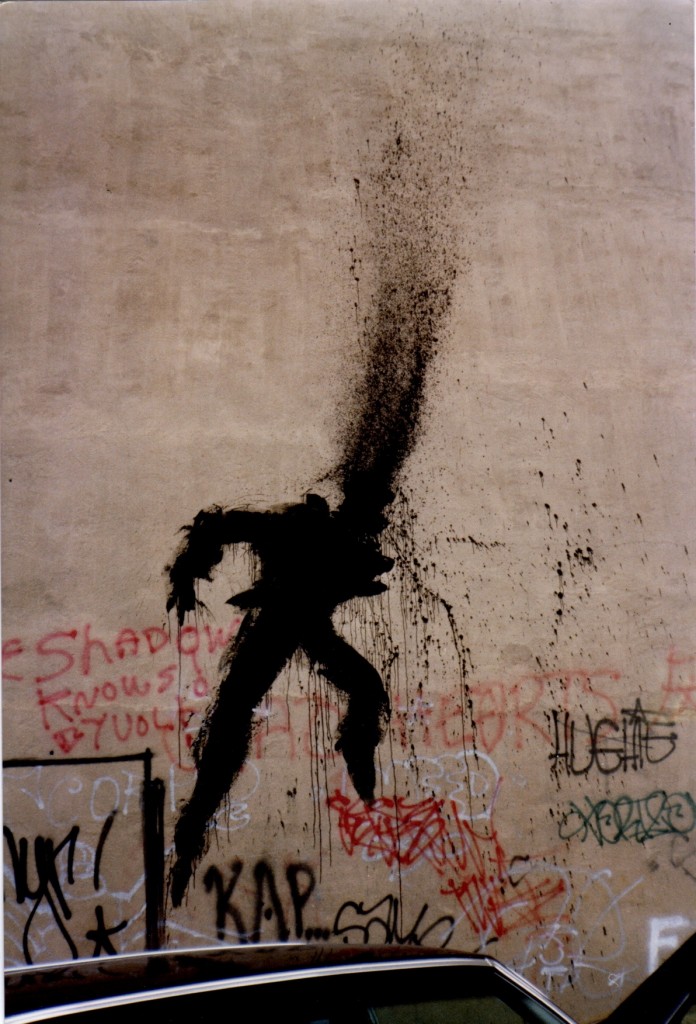Excerpts from
THE LAST INTERVIEW WITH JAMES EARL RAY A Counter Myth from Mike Golden’s
BEEN TO THE MOUNTAINTOP, WENT OVER THE EDGE
Three days later, Ray hired another attorney and filed a motion to vacate his plea and asked for a trial. 21 days after that, Judge Preston Battle was considering Ray’s motion when he died of a heart attack, face down on his desk, on top of the papers Ray had filed. At the time, there was a law on the books in Tennessee that said if a sitting Judge died while considering a motion, the motion would automatically be granted. Ray, as it turned out, was the exception to the rule of law in the state of Tennessee, and was never allowed a trial, while the law itself quietly disappeared from the state books like a thief in the night several months into the year following his death. One thing, and only one thing, is certain, however, up until his very last breath, James Earl Ray denied he had shot Dr. King.
For some reason I have never quite been able to explain outside reverberations from the unbelievable conclusions of the Warren Commission flacks, I was predisposed to believing Ray was a patsy even before I met him, though not once did I believe he was an innocent patsy.
Right before Ray died — after weeks of what appeared to be failed negotiations from Private Investigator Bill Hicks’ East Memphis couch to get into The Lois DeBerry Special Needs Unit of the Tennessee State Prison to interview him, Hicks finally got Ray’s brother Jerry on the phone. “Hey, Jerry, how are ya? Wild Billy here. I got this homeboy writer come down from New Yawk ‘cause he wants to get in to interview James. He’s been here three weeks now, practically moved in with us and become one of the family. But he’s eatin’ us out of house and home, so I’d appreciate it if you talk to him. . .You will? Ok, great, lemme get him; he and my wife are upstairs gettin’ it on like sex-crazed weasels.
“Hey, Jake, you an Miriam knock it off up there! Jerry Ray wants to talk to ya,” he laughs, then hands me the phone.
No matter what has been said about him, no one could ever question the wisdom of Wild Billy Hicks apocalyptic sense of humor. When, however, nothing happened 48 hours after the locker room conversation establishing my outlaw cred with brother Jerry, I went back to NYC, only to find a message on my machine when I walked in my apartment giving me less than 12 hours notice to get down to Nashville and be at the prison gates at 8 a.m. sharp if I wanted to interview Ray.
By the next morning, when I finally met him, Ray unfortunately was not even the Ray I expected anymore. Not the low level petty thief, three time loser that he was always described as in his early history. That Ray had died long ago. Replaced by a genuine larger than life famous Ray. Call his celebrity dubious, if you will, but Ray could just as easily have been the manifestation of the 70-year-old fictional incarnation of Jett Rink, if we evolved the fallen James Dean character from Giant, into the real world. There was a feeling around Ray that, no matter how unsavory, his life made everyone (around him)’s life more noble and important than it would’ve been otherwise.
It is one of the great ironies of celebrity that the aura is always bigger than the actual person. As one of the two living major alleged political stooges still in captivity, Ray was even more magnified than normal as the 30th anniversary of the MLK assassination neared. I had no expectations that this man who had always claimed he could “name names” would suddenly redeem his spent youth by looking into my eyes and dramatically proclaiming who did it like the great Orson, announcing over the loud speaker in Voice Over, “It was Rosebud, baby.” Nor did I believe that even if Ray actually knew anything, he would suddenly spill his guts to a complete stranger, even though that stranger came to him through his blood brother, Wild Billy Hicks.
To be honest, I was looking for something more empyreal than facts. The woods were full of Infomaniacs so eaten up with getting the so-called facts right that they forget that “the facts,” as Sgt. Joe Friday used to call them on Dragnet (http://en.wikipedia.org/wiki/Dragnet_(series)), were not as retrievable as the court system would like us to believe. Who remembers what color shirt they wore yesterday? Much less what some stranger was wearing as he walked, ran or drove by them, firing a pistol in the air? Most likely, not many of us. I, for one, certainly didn’t remember one shirt from another, unless it had to go in the laundry before I could wear it again. I knew from experience that the descriptions that evidence was usually based on, whether real or not, were almost totally constructed by investigators and lawyers. And if repeated enough times the color of a man’s shirt could become a mantra, and almost every other descriptive detail around that chant become an indisputable fact. The kind of fact I was sure after reading Ray’s lame Harvard ghosted autobiography (Who Killed Martin Luther King Jr.?) that Ray had been filled with, even if he had no first hand recollection of them himself.
The Lois DeBerry Special Needs Unit, it should be noted, is more like a hospital-prison than a prison-prison. Situated in the middle of a humongous middle Tennessee cow pasture, I could almost smell the shit of my own spent youth in the fields as I drove the rent-a-car into the parking lot. Except for the electronic barbed wire fence surrounding the compound of three prisons, it looked vaguely like a corporate industrial complex, maybe Bell Atlantic’s Southwest Headquarters, or a military research installation out in the middle of some bucolic nowhere.
The externals of the place weren’t as unsettling a juxtaposition of images as Ray himself was though. While 30-years in prison had turned him into an excellent historical painter, an extremely competent jailhouse lawyer and an unrepentant film buff, James Earl Ray was just a shadow of all those Rebel Without A Cause pictures I had seen of him throughout the years. He could have been dying in Auschwitz as easy as Nashville. Like an early ‘80s AIDS patient in his last days, his body was frail beyond belief, and his face was covered with sores. Splotches of antiseptic cream covered the sores. And when he entered the room, his feet not so much walked on the floor as stumbled along like they were being carried along by an ill wind. Much of what he said was difficult to understand because he was so weak. It took repeated listening to the tapes for me to catch nuances of Ray’s anger and fabled dry wit. But as the interview went along, Ray’s passion, energy and volume seemed to come to life.
A very bored looking black prison guard sat behind Ray as I leaned inches from his face in order to hear his shaky whisper. When he looked into my eyes, there was nothing in the wild blue yonder of his gaze that told me he was guilty, like it had told Oliver Stone’s screenwriter Kario Salem — who when he came out of visiting Ray, told the Private Investigator who brought him there, “I looked into his eyes, and I know he’s guilty!” There was nothing in there that told me Ray was innocent either. What I saw was a man, who despite barely being in his body, was totally dedicated to staying in it for as long as he could.
Once Ray got up and left the room to get the address of the Parole Board. He wanted me to give the address to the Reverend James Lawson, when I got back to Memphis, and to ask him if he’d write him a recommendation for a Medical Parole (Two nights later when I approached Lawson, after a wave of speakers stood up in Mason temple and testified against the official government version of the assassination, the Reverend waved off Ray’s request with a I know all about him wanting me to write a letter to the Parole Board.).
When Ray came back, he gave me a color print of a painting he had done called The Legion in the Battle for Dein Bienphu, Vietnam – 1954.
The guard gave us a warning then, and left the room for the first time. Which is when Ray whispered, “I think they injected me with Hepatitis. I haven’t got much time left.”
Whether they did or didn’t inject him, it turned out to be a prophetic statement. Those words went right along with the Assistant Attorney General’s statement to me two days later in Memphis, that “if (Ray) ends up dying during this because of his health, I’m afraid that’s part of his sentence. I think when he signed up for his sentence there was a distinct possibility he would die in prison. Which we’re seeing happening.”
It almost seemed like the State didn’t care whether a potential witness in a major unsolved case lived or died. “What happens to the case if Ray dies?” I asked.
“The stories that are being set up now are independent of Ray.” the assistant AG answered. “If Ray dies tomorrow it will make no difference, ’cause the stories have gone way beyond that. They go out and touch other people, and other theories. And Ray’s a very small part of ’em. So if Ray dies tomorrow it’s not going to change anything at all. It may make my life a little easier, from the standpoint of a court case that I’ve been dealin’ with, but I still think there’ll be people out there like Oliver Stone advocating certain counter theories in his movies that a lot of people will believe are true for quite a while.”
|
an excerpt from: THE LAST FACE-TO-FACE INTERVIEW WITH JAMES EARL RAYJAMES EARL RAY: Do you know Oliver Stone? JAKE STEIN: Yeah, but no, not really. We’ve met. We’ve talked. . .about you, in fact. JER: Once upon a time I’dve liked Steve McQueen to’ve played me. JS: I didn’t know you thought about that kind of stuff. JER: Oh yeah. But it’s too late for that kind of thinkin’. It’s almost too late to tell this story. JS: Who’s most responsible for stopping you from getting a trial, James? JER: We’ve stopped askin’ for a trial. I haven’t got much time left. I’ve been in a coma two or three times now. The Attorney General, what he wants me to do, is agree to everything he ever said about me. Tell ’em I’ve been lyin’ about everything all these years. I’m not gonna do that! They want me to die in prison, see. I’m tryin’ to get into the Veterans Administration Hospital, where they can help me out more. But accordin’ to the Attorney General now, he’s sayin’ first he wants to look at all these records that’ve been classified for 30 years. What the hell’s he waitin’ 30 years to ask for the records? They keep sayin’ that I’m guilty. But how can they keep sayin’ that if they haven’t seen the records? JS: Who do you think actually did it? JER: (loudly) I-I-I-I DON’T KNOW THAT! How could I know that? The FBI, they was all over Dr. King before he was shot. Now DeLoach, he’d been involved in some of these dirty tricks… After they arrested me, they put DeLoach on to investigatin’ me, and makin’ a case. I can’t understand things like that. Too many. . .dirty tricks. They shot Dr. King, but they’re the good guys and I’m the bad guy, see. JS: Looking back 30 years, do you remember the moment you knew you were set up? Was it when you were driving away in the white Mustang? JER: I’ll tell you somethin’ I never told nobody before, if we can keep it off the record. . . JS: Off the record? Yeah, sure. JER: xxxxxxxxxxxx-OFF THE RECORD-xxxxxxxxxxxx JS: I never thought of that! JER: Well who would, if they hadn’t set the whole thing up beforehand? I never was certain what was happening while it was happening because I couldn’t make those assumptions. I never had nothin’ against Martin Luther King. I didn’t support the Vietnam war, see. And the poor people’s march on Washington, that didn’t bother me none. There was no reason for me to be opposed to any of that stuff. There was no reason for me to think about any that stuff. I was just tryin’ to get out of the country before they sent me back to prison. JS: When were you aware that Dr. King was staying at the Lorraine? JER: Lots of people didn’t have anything in their minds about Martin Luther King. I obviously knew his name, you know. It was just like Al Gore was in town, see. You know he’s the Vice President, but you just don’t think about him. All this ole murder and assassination stuff don’t make no sense anyway. What’s the point in shootin’ someone? You can get lost in this stuff… JS: You sure can. Why do you suppose they want to keep the records closed? JER: It’s obvious. They ain’t got nothin’ real. . .I heard this FBI guy (Don Wilson) who found the Mustang, found an envelope with some papers wedged against the door, that had somethin’ connected to Raul in it. JS: Yeah, a sheet with his name, and a column of numbers adding up to over $400,000. JER: I heard there was information about Jack Ruby in there too. JS: Another piece of paper with the phone number of a Club he owned in Dallas. JER: What’s that about? Jack Ruby was dead by then! JS: Some people think he wasn’t. . . In fact, some people think he still isn’t dead.
JAMES EARL RAY: No doubt, if the whole story of what happened got done right, it would make a terrific movie. But I’m not sure your buddy Stone is the guy to do it. JAKE STEIN: Oh I think he is. He’s the only guy in fact who’s crazy enough to want to do it. But he’s not my buddy, James. You’ve spent a lot more time with him than I have. JER: Yeah, that’s why I don’t think he’s the guy to do it. JS; Well, I respect his work. Salvadore, for one, was a killer. JER: Yeah, that one wadn’t too bad. But I don’t think he’s ever come close to it again. JS: What about Natural Born Killers? JER: (laughs) I think you’ll agree I know somethin’ about prison life, which is why I don’t think he’s the guy to do it. Besides that, I don’t think he’s done a good job handling the media attacks on either JFK or Natural Born Killers, so what’s he gonna do when they come down on him for Memphis? Last time I saw him it seemed like the accumulation of attacks were startin’ to take their toll on him. He should’a kept his mouth shut when the hyenas leaped on him like he was the sirloin of wildebeest they decided to have for lunch. But I don’t think that’s in his nature. After they attacked him on JFK, he totally shot himself in the foot by labelin’ the film as “a counter myth”. “A COUNTER MYTH!” Can you believe that choice of words? What he should’a done was looked right through the slots in their little bought souls, and roared, “YOU SAY YOU WANT THE TRUTH, BUT YOU WANT THE LIES!” Now I’m not sayin’ your buddy’s a pussy or anything like that, but his defense that NBK was “satire” didn’t help his case much either; it just got him branded as a guy who was not only a national conspiracy joke, but a guy who didn’t have a sense of humor to boot. JS; You seem to have been following this stuff pretty closely, James. JER: What’s time to a hog, man? If I wadn’t stuck in here I don’t think I’d be payin’ that much attention to any of this crap, but bein’ that I don’t appear to be goin’ anywhere soon. . . JS: Well you’re right about one thing, from the day Oliver tried to defend JFK, instead of standing up for it, interest in conspiracies automatically became missing-in-action from the zeitgeist of the times, but I do think he has a sense of humor. That’s a bad rap. JER: Yeah, he’s got a sense of humor alright, but the reason it’s not a bad rap is that nobody but him thinks he’s funny. JS: If you’ll excuse the baseball metaphor, that’s because he’s a power pitcher. He’s never learned how to take anything off his fastball. JER: So how am I gonna trust him to do Memphis? Despite all the black & white issues, this ain’t no black & white story. And if I can throw your baseball metaphor right back at you, your buddy’s got no nickel curve, got no changeup, got no screwball, just fast and faster are his only pitches, see. He knows how to stick out his tongue and cross the line, ‘til they get pissed at him, he just don’t know how to keep it in his pants and erase the line; and that simple trick is the difference between bein’ forced to play somebody else’s game and bein’ able to play your own. It’s the difference between me dyin’ in prison without ever havin’ my case heard, and provin’ in a court of law that I didn’t shoot MLK. It’s the difference in bein’ the visiting team and havin’ the home court advantage. Stone crossed all over the line in JFK and did it again and pissed on it too in Natural Born Killers, so much so that if there were moments that were genuinely funny in the film, they didn’t get a laugh from me. NBK was such a pure pile driver that it got inside my body and stayed there like a root canal does. That’s power, and it’s overwhelming, but it’s not necessarily funny, even when individual moments actually are. And because the film only went in one direction, once it crossed the line and invaded my body, it stayed there; in fact, it was as trapped there as I am here. Rather than satire, rather than irony, what NBK gave off was a mirror of exactly what the film was attemptin’ to parody. Even with all those telegraphic film school attempts at psychedelic surreality, the mirror of the movie was so overwhelmingly real, it erased the nuance. Yet NBK could’ve easily been your buddy’s masterpiece. JS: How’s that? JER: Well, he actually had the opportunity to erase the line (which would have illuminated the satire he wanted to convey). If you remember the film, Stone’s opportunity for greatness came towards the end, after Mickey (Woody Harrelson) had taken the gun away from the guard. A prisoner suddenly appeared on the screen who acted so familiar he seemed like his character must have been cut out of a number of earlier scenes and left on the cuttin’ room floor. Even though we’d never seen him before, he was treated like Mickey obviously knew who he was and trusted him when he said he could lead them through an underground passage out of the prison. Now if that cuttin’-room-floor prisoner had led them not only out of the prison, but out of the movie, crossin’ back over the line where Stone and his crew were filmin’ (Oliver and Quentin could’ve been arguin’ about the script, Woody could be talkin’ about his real father who was in prison charged with murder and synchronistically bein’ defended by the same snake Percy Foreman who coerced me into pleading guilty, etc…), Stone would’ve merged the fiction of the film, the reality of makin’ the film, and the hype surroundin’ the film, with the audience watchin’ the film, all in one fell swoop. By includin’ himself into the problem of the media’s treatment of violence, the irony he illuminated would’ve actually separated him from the problem, and because he had erased the line instead of just crossin’ it, made him critically untouchable at the same time he got the message across that you cannot touch this shit without becomin’ the shit itself. JS: Jesus, James, you could be— JER: (holding two thumbs up) Ebert’s new partner. That is, if they’ll find a new liver to keep me alive, and he’ll come down and shoot the show in Nashville every week. JS: Did you get the chance to give Stone your insights on Natural Born Killers? JER; Nah, When we met to talk about the Memphis film, he was too distracted to talk about anything else but how they were gonna get him for makin’ it. Though he couldn’t really believe if he did all his homework absolutely perfectly, like a good boy, that the media establishment would still slap him, trivialize his work and turn him into a national joke for crossin’ the line into their territory again. He don’t quite seem to understand that if they couldn’t (or don’t want to) solve the JFK or MLK assassinations, they damn well aren’t gonna let him solve it for ‘em. And if he actually shows ‘em up again by solvin’ it, then they really will get his ass. Ultimately the game of tryin’ to prove you’re right to the New York Times has no more future than tryin’ to prove you’re right to your dead father; neither of ‘em wanna hear what you have to say, much less are capable of eatin’ the mandatory crow it takes to admit you’re right and they’re wrong. I realize that whatever else goes down in the course of this life, that is just not gonna happen for any of us. For you, James Earl Ray and Oliver Stone included |
©2013 Mike Golden
Newly digitized videos of the man who killed Martin Luther King, Jr.
NBCNews.com (blog)
- Revealed: Unseen film of Martin Luther King’s assassin in the …
Daily Mail - The death of Martin Luther King Jr: James Earl Ray tapes raise more …
The Grio - WBXH
- TPM
Historic fast food strike draws lessons from MLK’s last campaign
MSNBC - The Murder of Martin Luther King Jr.
ABC News (blog) - CounterPunch
- Patriot-News



